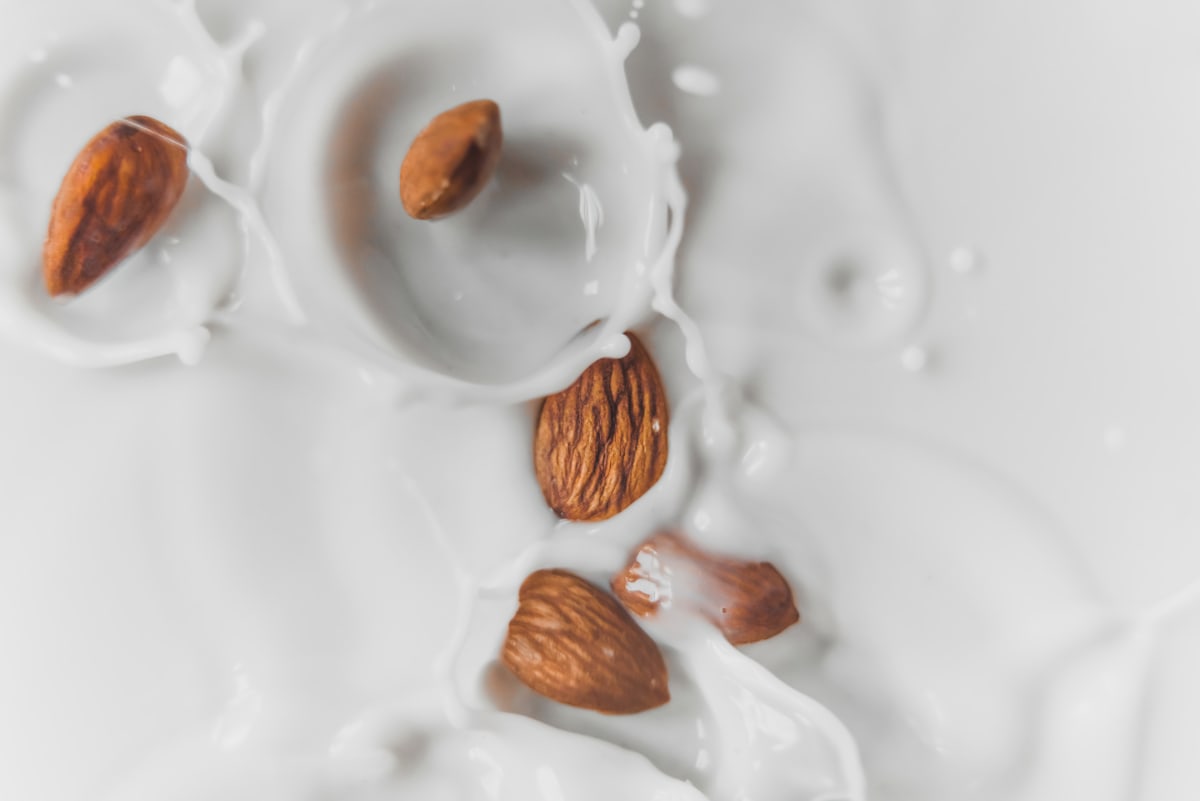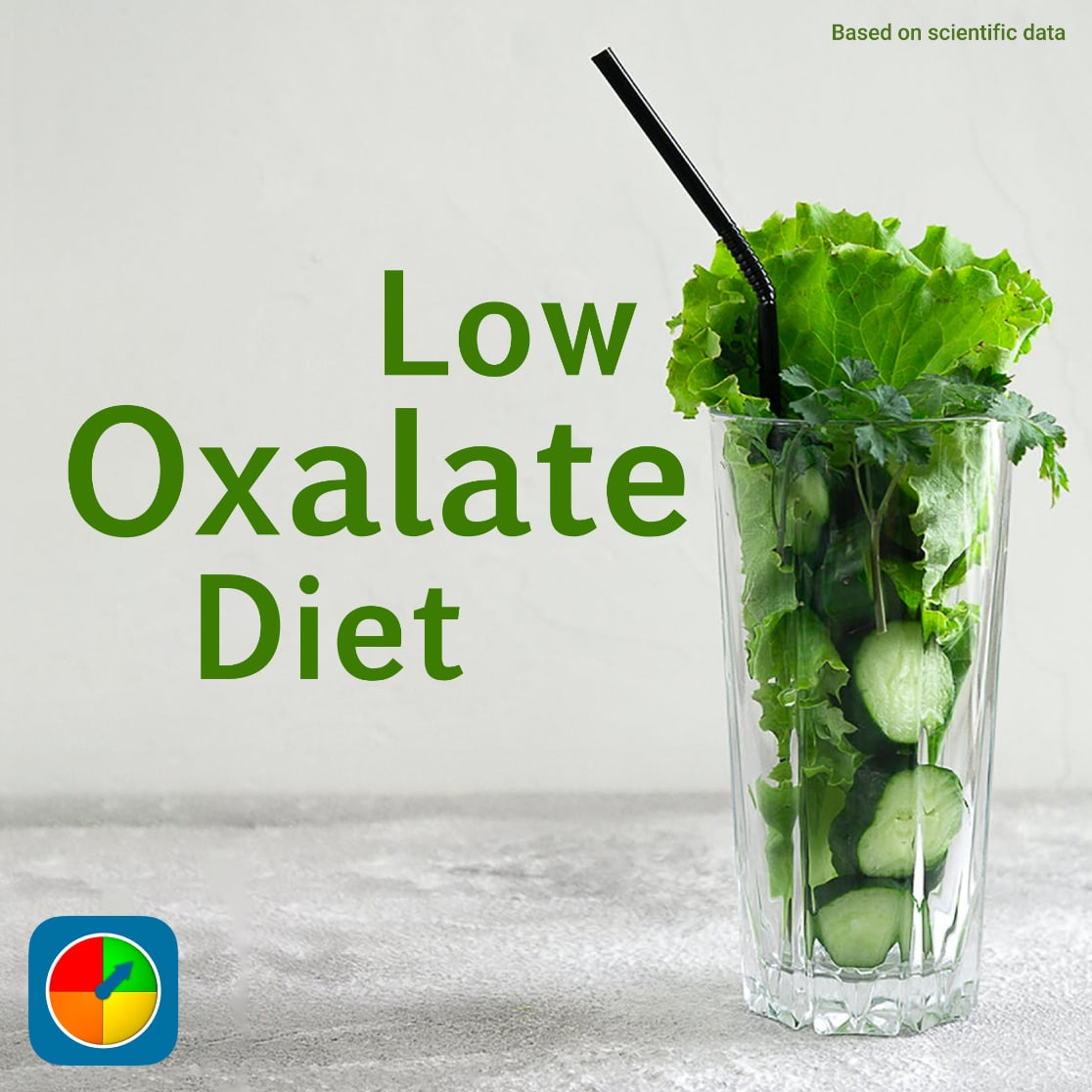Does oxalic acid in plant milk increase the risk of kidney stones?
04/08/2024 Food Intolerances OxiPur
As recently as a few years ago, plant-based milk alternatives were considered an exotic, niche product. Today, however, they enjoy incredible popularity and are available in a multitude of varieties. These include milk from:

Each variety has its own unique taste, and some are more suitable than others depending on how they are used, such as in coffee or cereal. Some plant-based milk tastes very different to traditional cow’s milk, so it makes sense to try different types and find out which one tastes best for you.
There are obvious advantages to using plant-based milk alternatives. Farming conditions in traditional agriculture can be terrible, while the associated animal suffering is also a well-debated argument. In addition, plant milk consists of only a plant protein source, water, and a few other additives, making it a suitable drink for vegans.
Compared to conventional milk production, plant milk can be produced in a very resource-efficient way. The livestock industry is responsible for around 15% of global CO2 emissions, while the carbon footprint of plant production is several times lower.
People who suffer with lactose intolerance are also drawn to plant-based milk because they do not naturally contain lactose.
Plant-based milk and its effect on sufferers of kidney stones is an interesting question. The point of consuming milk alternatives is to reduce the proportion of animal proteins in our diet, and in that regard, plant-based milk is a good substitute. Nutritional recommendations also advise reducing salt and oxalates intake, but here is where milk alternatives score unfavorably compared with cow's milk. While the oxalate content in traditional milk is negligible, plant-based milk substitutes can contain oxalates in significant amounts, although this depends a great deal on the product in question.
Calcium content should not be overlooked in this discussion. Several studies have shown that an adequate supply of calcium can significantly reduce the risk of kidney stones.
In their natural form, plant-based milk alternatives are negligible sources of calcium, and fortification is the only way manufacturers can ensure their products contain the same level of calcium content as animal milk.
Let’s compare the oxalate content of plant milk using three examples: coconut milk, oat milk, and almond milk.
Almond milk has the highest oxalate content among plant-based milk alternatives and is therefore not suitable for people who suffer from kidney stones. Meanwhile, coconut milk is at the lower end of the oxalic acid spectrum, making it a good option for those who need to watch their oxalic acid intake.
Oat milk, undoubtedly one of the most popular alternatives, has an oxalate content that is slightly higher than that of coconut milk, but significantly lower than that of almond milk. Meanwhile, it is worth noting that coconut milk and almond milk are low in protein.
▲ Table 1: Oxalate content of various plant-based milk substitutes [Source: OxiPur].
Plant milk is becoming an ever more attractive option for consumers looking for an alternative to traditional animal milk. Intriguing though its properties may be, however, it is markedly low in protein compared to animal milk. Some varieties, such as almond milk, contain extremely high amounts of oxalate, and this makes them a poor nutritional choice for sufferers of kidney stones or other oxalate-related conditions.
Alternatives like oat, coconut, or soy milk, are more suitable substitutes, especially if they are enriched with calcium. Check out our OxiPur app for information on many other popular milk alternatives, and make the right choice for you.
 We have been developing our "OxiPur" app about gout and oxalates for many years and are happy to share our knowledge with you. Check it out:
We have been developing our "OxiPur" app about gout and oxalates for many years and are happy to share our knowledge with you. Check it out:
Share article
Back to blog
- grains: oat, rice, spelt
- legumes: soy, pea, lupine
- nuts: almond, hazelnut, cashew, macadamia
- and other sources: coconut, hemp, quinoa

Each variety has its own unique taste, and some are more suitable than others depending on how they are used, such as in coffee or cereal. Some plant-based milk tastes very different to traditional cow’s milk, so it makes sense to try different types and find out which one tastes best for you.
Why is plant-based milk so popular?
There are obvious advantages to using plant-based milk alternatives. Farming conditions in traditional agriculture can be terrible, while the associated animal suffering is also a well-debated argument. In addition, plant milk consists of only a plant protein source, water, and a few other additives, making it a suitable drink for vegans.
Compared to conventional milk production, plant milk can be produced in a very resource-efficient way. The livestock industry is responsible for around 15% of global CO2 emissions, while the carbon footprint of plant production is several times lower.
People who suffer with lactose intolerance are also drawn to plant-based milk because they do not naturally contain lactose.
Is plant milk suitable for people with kidney disease?
Plant-based milk and its effect on sufferers of kidney stones is an interesting question. The point of consuming milk alternatives is to reduce the proportion of animal proteins in our diet, and in that regard, plant-based milk is a good substitute. Nutritional recommendations also advise reducing salt and oxalates intake, but here is where milk alternatives score unfavorably compared with cow's milk. While the oxalate content in traditional milk is negligible, plant-based milk substitutes can contain oxalates in significant amounts, although this depends a great deal on the product in question.
Is plant milk a good source of calcium?
Calcium content should not be overlooked in this discussion. Several studies have shown that an adequate supply of calcium can significantly reduce the risk of kidney stones.
In their natural form, plant-based milk alternatives are negligible sources of calcium, and fortification is the only way manufacturers can ensure their products contain the same level of calcium content as animal milk.
Evaluating the kidney stone risk
Let’s compare the oxalate content of plant milk using three examples: coconut milk, oat milk, and almond milk.
Almond milk has the highest oxalate content among plant-based milk alternatives and is therefore not suitable for people who suffer from kidney stones. Meanwhile, coconut milk is at the lower end of the oxalic acid spectrum, making it a good option for those who need to watch their oxalic acid intake.
Oat milk, undoubtedly one of the most popular alternatives, has an oxalate content that is slightly higher than that of coconut milk, but significantly lower than that of almond milk. Meanwhile, it is worth noting that coconut milk and almond milk are low in protein.
| Variety | Oxalate content per 100 ml |
|---|---|
| Almond milk | 142 mg |
| Soy milk | 2.6 mg |
| Oat milk | 2 mg |
| Coconut milk | 0.5 mg |
| Cow's milk | <0.4 mg |
Conclusion
Plant milk is becoming an ever more attractive option for consumers looking for an alternative to traditional animal milk. Intriguing though its properties may be, however, it is markedly low in protein compared to animal milk. Some varieties, such as almond milk, contain extremely high amounts of oxalate, and this makes them a poor nutritional choice for sufferers of kidney stones or other oxalate-related conditions.
Alternatives like oat, coconut, or soy milk, are more suitable substitutes, especially if they are enriched with calcium. Check out our OxiPur app for information on many other popular milk alternatives, and make the right choice for you.
 We have been developing our "OxiPur" app about gout and oxalates for many years and are happy to share our knowledge with you. Check it out:
We have been developing our "OxiPur" app about gout and oxalates for many years and are happy to share our knowledge with you. Check it out:Share article
Back to blog
![[Blog]](../../rw_common/images/baliza_logo_retina.png)
